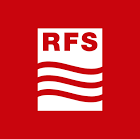Earth Day 2024: Staying focused on ESG
The Four Principles
In 2023, we highlighted four key environmental principles that show RFS’s commitment to sustainability:
Green by design
Premium performance will always be the number one priority for our products, but an increasing number of RFS solutions are ‘green by design’ with no performance compromise. Design for Environment (DfE) is part of the Product Lifecycle Process, with all products undergoing our RFS Product Carbon Footprint Life Cycle Assessment.
Built to last
One of the easiest ways to reduce environmental impact over the long term is with equipment that is built to last. A long product lifespan is a key benefit for our customers, not only from an investment point of view but also from an environmental perspective. There is a reason our motto is ‘Lifetime Connectivity.’
Sustainable manufacturing
At RFS, we are keen to lead by example, showing how the communications equipment industry, and particularly those involved in manufacturing, can achieve sustainability goals.
Smarter Logistics
Delivering the final products to our customers is an area where there is potential to refine processes to reduce the overall carbon impact.
The Principles in Action
Last year, we looked in detail at our first two principles. Our green connector design, which uses fewer raw materials and a streamlined manufacturing process, showcased our ongoing focus on Green by Design. We showcased how RFS solutions are built to last, pointing to one of our longest-standing deployments that has seen the same RFS cable deliver consistently for over 50 years.
This year, we will look at the principles of Sustainable Manufacturing and Smarter Logistics.
Sustainable Manufacturing: The Suzhou Solar Project
In 2023, RFS launched a major project to install solar panels on the roof of our Suzhou factory. With a roof space of 16,000 square meters, equivalent to 40 basketball courts, the panels can generate 1.49MW of power. The project is expected to see an annual power generation 1.35 million kWh per year and save an estimated 1346 Tons of CO2 annually. In January 2024, the project was successfully connected to the state grid for power generation, meaning any excess energy can be utilized beyond our Suzhou factory, extending the positive environmental impact of RFS.
The successful implementation of this renewable energy project demonstrates how sustainable practices can be integrated into the manufacturing sector to significantly reduce environmental impact. You can read the full ESG Case Study here.
Smarter Logistics: The LightDrum Launch
Logistics is one of the biggest challenges to tackle from an ESG perspective. At RFS we have constantly worked to reduce the impact of transportation and delivery of our products with a number of initiatives. They include optimizing the layout of our cable factory, warehouse, and drum storage area to result in less internal transportation between areas and maximize carbon efficiency. RFS also committed to an initiative to move towards Full Container Load (FCL) shipments rather than Less than Container Load (LCL) shipments.
Following on from this, we were delighted to announce the launch of our LightDrum earlier this week. LightDrum is a small version of RFS’s standard drum to minimize waste when ordering shorter cable lengths. It has been optimized for truck transport and allows RFS to make better use of height, as LightDrums are easy to stack.
To put the environmental benefit of this into context, selecting a LightDrum instead of a partially loaded standard drum offers a 77% reduction in the transport CO2 emissions. The compact nature of the drums offers a further opportunity to reduce CO2 emissions as the drums can be transported to the site on a crew bus rather than a weekly delivery on a separate 7.5-12 T truck. Based on this approach we project a saving of 135 kgCO2e per team and week, meaning an average installer with 10 teams would potentially save 493 tCO2e/year.
Conclusion
These are just two examples of how RFS is continuing to focus on reducing its environmental impact. We’re proud that we are making continued, measurable progress against our environmental goals and that the movement can be seen across the entire business. By working with the four principles, we have been able to ensure RFS is effective changes within the organization, without taking a ‘greenwashing’ approach.


